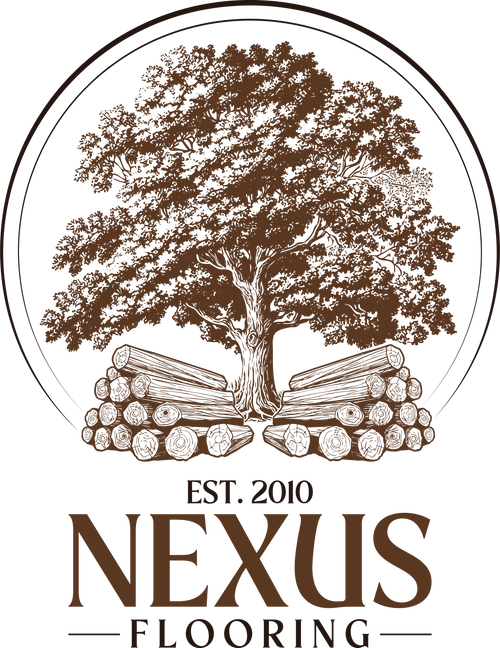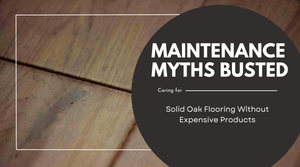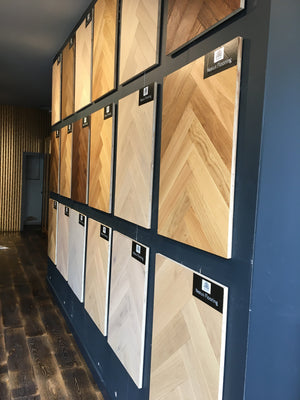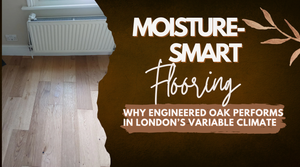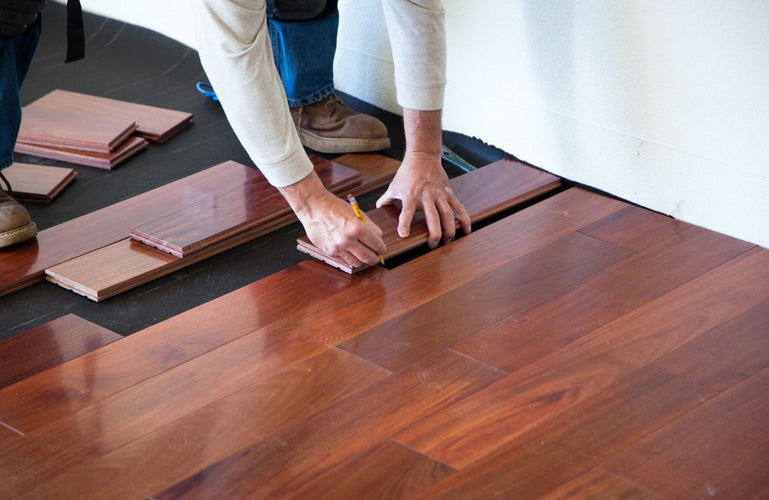The kitchen is the heart of your home: a place where everything is done in a hurry, starting from breakfast, through dinner parties, and midnight munchies. Given the activities going on, the kitchen flooring has to be more than just pretty: it has to be tough, moisture-resistant, and easy to maintain. Here arises the question: Is engineered hardwood flooring a good option for kitchens?
In this blog, we will find out if engineered wood flooring really holds up to the special demands placed upon kitchen areas. We will cover its advantages and disadvantages, its comparison with other materials, and the few things that are a must-know before installation.
Why Flooring Choice Matters in Kitchens
Kitchen flooring has a tough job to do. It must withstand foot traffic, spills, scratches, being dragged about by heavy furniture, and temperature changes. At the same time, it must be something that will fit into the design concept of your space. So choosing the right material becomes important.
Hashred with a tile or vinyl setting, the conventional choice for kitchens has been around for quite some time. Lately, however, many users have been seeking a wooden appearance with warmth and natural character. There is one big disadvantage for solid hardwood in the kitchen: it just doesn't work well with moisture. This is just where engineered flooring can stand tall as a worthy substitute.
What Is Engineered Hardwood Flooring?
Engineered hardwood consists of a thin grain layer of hardwood bonded to multiple layers of good quality plywood or HDF. Layering in this way confers onto the floor a greater dimensional stability and resistance to moisture than would a solid wood floor- without compromising the aesthetic appeal.
Because the top layer is wood, you get the genuine grain, texture, and finish that is so attractive in a wood floor. Those qualities actually make engineered woods worth their salt in kitchens, as they have the added strength and dimensional stability.
Pros of Using Engineered Wood Flooring in Kitchens
There are many reasons why engineered wood makes an excellent choice for your kitchen floor.
Moisture Resistance
Engineered wood, unlike its solid hardwood counterpart, lessens alteration due to changes in humidity and temperature. It is not waterproof-but at a minimum, it resists warping and swelling resulting from minor spills or steam-a daily fare in the kitchen area.
Appearance
Since the surface is made of real wood, engineered wood can provide the same warmth, grain patterns, and rich textures as a solid hardwood floor. It will compliment both traditional and contemporary kitchen designs.
Comfort
It is softer and warmer underfoot than tile, so it is easy to stand on for an extended time while cooking or cleaning.
Installation
Because they generally incorporate a click-lock or tongue-gap system, installation of engineered hardwood floors is easier and quicker. Some of the floors can be floated over existing subfloors with little to no preparation.
Compatibility with Radiant Heating
In case of intention to install underfloor heating in the kitchen, opting for an engineered wood floor would be a great idea, as it withstands temperature change better than solid wood.
Things to Consider Before Installing Engineered Wood in Your Kitchen
While engineered wood flooring does have some value, it really isn't a perfect choice. There are some considerations of paramount importance that must be considered before installation:
Not Waterproof
It has some moisture resistance; however, engineered wood flooring is not water damage-resistant. Spills have to be wiped away within minutes. Continuous exposure to standing water, leaks, or humidity will cause damage the longer it stays around.
Surface Can Be Scratched
Tough finishes notwithstanding, surface wear on engineered hardwood can be caused by a dropped utensil, claws of a pet, or wooden furniture dragged across the floor. To maximize its lifespan, places where chairs are often moved or areas with heavy foot traffic should have felt pads or area rugs laid down.
Higher Cost Compared To Vinyl or Laminate
Less expensive and way more affordable than an original piece of hardwood, engineered flooring is sometimes perceived by consumers to be an extra expense when compared to vinyl or laminate. But I think many would say they're happy to pay for that extra money because of the look and feel of real wood and its long-term durability.
How Does Engineered Flooring Compare to Other Kitchen Floor Options?
Homeowners weighing floors for their kitchens are most likely thinking of tile, vinyl, and laminate, each having a distinct strength to offer.
Tile is, perhaps, the strongest and most water-resistant, but sometimes it feels hard and very cold underfoot. Vinyl is very comfortable and waterproof but lacks the warm feel of real wood. Laminate can very well imitate wood and is cheap but might take more moisture damage in kitchen surroundings and may not last longer.
Hence, an engineered hardwood floor offers a perfect combination of aesthetic appeal, comfort, and durability-it is ideal for anyone seeking the natural beauty of wood without the legwork of solid wood.
Tips for Maintaining Engineered Hardwood in the Kitchen
Maintenance practices that can ensure the best from your kitchen engineered wood floors would be:
- Immediately clean spills so that moisture might not penetrate.
- Soft-bristled brooms and microfiber mops are great for everyday cleaning.
- Before washers, sinks, and dishwashers, rugs or mats can be laid to catch water and debris.
- Use finishes or sealants that are water-resistant and come with a good warranty.
- Waterless cleaning only, no steam mops, please!
Final Thoughts: Is Engineered Wood the Right Choice for Your Kitchen?
If you face the question, the decision depends on what you prioritize. If you want a floor that the natural charm runs through, feels good to stand on, and has decent resistance to moisture, then engineered wood flooring stands as a splendid choice for your kitchen. It fills the half-step between class and practicality for any homeowner who puts stylish looks on real wood as an example.
With proper care and precautionary measures, one can enjoy engineered hardwood floors for many years in the kitchen. It might not capitulate as much water into the floor, yet many consider this worthy of having the kitchen warm with character and everlasting charm.
